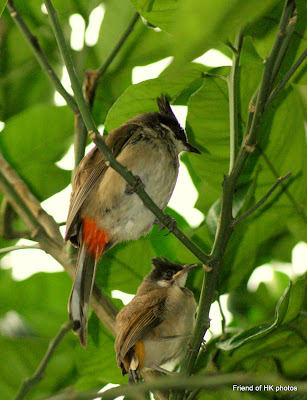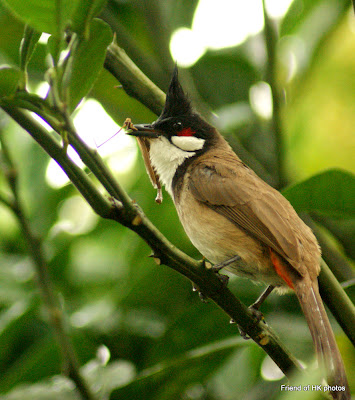The recent bad weather in Hong Kong had caused another casualty in the bulubul family as I found a dead chick in the garden several days ago. But the fact that the parents still continued to feed the chicks meant that there was still hope.
The young Red-whiskered Bulbuls are usually fed caterpillars and insects in the first couple of weeks of their life, which are gradually replaced by fruits and berries. The fruiting mulberry tree near my house proved to be very handy for the parents.
But the ripe mulberries were too soft to carry home in big chunks,
The young Red-whiskered Bulbuls are usually fed caterpillars and insects in the first couple of weeks of their life, which are gradually replaced by fruits and berries. The fruiting mulberry tree near my house proved to be very handy for the parents.
But the ripe mulberries were too soft to carry home in big chunks,
so they had to do with the less ripened berries.
Occasionally, they brought home other types of berries and fruits too.
The ripe papayas in the garden were also difficult to carry around in large pieces.
A few days ago, I saw the parents flying around a small tree, and then I realized that the little chicks must have fledged.
After a very careful search, I found one little fledgling hiding among tree leaves. It seemed that only one chick survived in this brood.
The fledgling was still dependent on the parents for food in the first few days, but the feeding frequency was much less than before.
The young bird was growing very fast.
I saw the youngster jumping up and down the trees searching for food a couple days ago and I am sure it will fly away very soon. The parents, on the other hand, may just have enough time for the second breeding of this year.


















































